-
 +25 +3
+25 +3The snake clitoris has finally been found
You might be wondering: why was anyone looking for a snake clitoris in the first place? The short answer is that, well, men aren't great at finding clitorises in general, so of course the male-dominated science fields wouldn't even know where to start looking for one on a snake.
-
 +15 +5
+15 +5Visualizing the inside of cells at previously impossible resolutions provides vivid insights into how they work
Many microscopy techniques have won Nobel Prizes over the years. Advancements like cryo-ET that allow scientists to see the individual atoms of cells can reveal their biological functions.
-
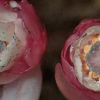 +23 +3
+23 +3Ethereal New Plant Species Doesn't Use Photosynthesis - It's Found Something Sneakier
Cloaked by the shadows of enchanting Asian woodlands, strange growths can be seen peeking out from between leaf litter like the ghosts of long-dead flowers.
-
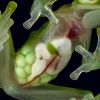 +19 +6
+19 +6Glass act: Scientists reveal secrets of frog transparency
WASHINGTON (AP) — Now you see them, now you don’t. Some frogs found in South and Central America have the rare ability to turn on and off their nearly transparent appearance, researchers report Thursday in the journal Science .
-
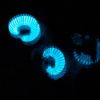 +22 +4
+22 +4Bushwalkers accidentally discover Australia's first known bioluminescent millipedes
Scott Kemp first saw glow-in-the-dark millipedes in the Illawarra 18 years ago, but he had no idea he was making a significant scientific discovery.
-
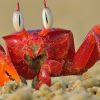 +14 +3
+14 +3Crabs Aren't The Only Things Evolution Keeps Making. An Expert Explains.
Charles Darwin believed evolution created "endless forms most beautiful".
-
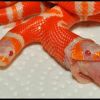 +17 +1
+17 +1What Would Happen If You Fed Only One Head of a Two-Headed Snake?
-
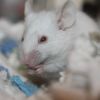 +19 +5
+19 +5Bacteria that break down nicotine found in the guts of mice
A team of researchers affiliated with multiple institutions in China, working with a colleague in the U.S., has isolated a type of bacteria in the guts of mice that break down nicotine. In their paper published in the journal Nature, the group describes how they isolated the bacteria and why their finding could reduce incidences of fatty liver disease in humans.
-
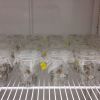 +7 +1
+7 +1Honey bee life spans are 50% shorter today than they were 50 years ago
A new study by University of Maryland entomologists shows that the lifespan for individual honey bees kept in a controlled, laboratory environment is 50% shorter than it was in the 1970s. When scientists modeled the effect of today's shorter lifespans, the results corresponded with the increased colony loss and reduced honey production trends seen by U.S. beekeepers in recent decades.
-
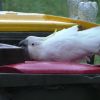 +9 +1
+9 +1An arms race over food waste: Sydney cockatoos are still opening curbside bins, despite our best efforts to stop them
Bloody hell! That cockatoo just opened my bin, and it's eating my leftover pizza. We can't have that, I'll put a rock on the lid to stop it opening the bin. Problem solved…? And so began an arms race in the suburbs of southern Sydney: humans trying to deter sulfur-crested cockatoos from opening curbside bins, and cockatoos overcoming their deterrents to feast on our food waste.
-
 +18 +1
+18 +1Secrets Of Southern Australia | Full Documentary | TRACKS
A long watch.
1 comments by kxh -
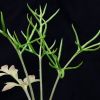 +12 +1
+12 +1Ferns Are Super Weird – And Their Genomes Are Even More Chaotic Than We Thought
There's something really peculiar about ferns.
-
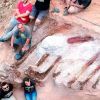 +23 +6
+23 +6Portugal man accidentally uncovers a 25-metre-long dinosaur skeleton in his own backyard
A 25-metre fossilised dinosaur skeleton was the last thing a Portugal man expected to uncover in his own backyard in 2017, but now researchers believe he may have stumbled upon the largest of its kind in Europe.
-
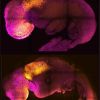 +17 +2
+17 +2'Synthetic' mouse embryo with brain and beating heart grown from stem cells
Researchers from the University of Cambridge and Caltech have created model mouse embryos from stem cells—the body's master cells, which can develop into almost any cell type in the body—that have beating hearts, as well as the foundations for a brain and all of the other organs in the mouse body.
-
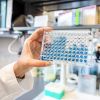 +3 +1
+3 +1The quest to show that biological sex matters in the immune system
Sabra Klein is deeply aware that sex matters. During her PhD research at Johns Hopkins University, Klein learned how sex hormones can influence the brain and behavior. “I naively thought: Everybody knows hormones can affect lots of physiological processes—our metabolism, our heart, our bone density. It must be affecting the immune system,” she says.
-
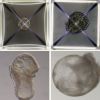 +4 +1
+4 +1Using only skin cells, Israeli lab makes synthetic mouse embryos with beating hearts
An Israeli lab has grown synthetic mouse embryos with brains and beating hearts — in an egg-free sperm-free procedure that used stem cells taken from skin. The breakthrough, published on Monday in the peer-reviewed journal Cell, represents the first time that an advanced embryo of any species has been created from stem cells alone, cell biologist Prof. Jacob Hanna of the Weizmann Institute of Science told The Times of Israel.
-
 +23 +5
+23 +5The Complete History of the Earth
Paleo Analysis
-
 +4 +1
+4 +1How 'frozen zoos' could save vanishing animals from extinction
When Kurt Benirschke started collecting skin samples from rare and endangered animals in 1972, he didn't have a firm plan on what to do with them. As a researcher at the University of California San Diego, he believed that one day the tools would be developed to use them to save those animals. A few years later, he moved his collection to San Diego Zoo, and called it the Frozen Zoo.
-
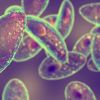 +15 +6
+15 +6One in three people are infected with Toxoplasma parasite – and the clue could be in our eyes
We looked at eye photos and found one in every 150 Australians might have scarring from a common parasitic disease.
-
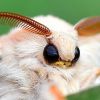 +17 +2
+17 +2The Two Drivers of Massive Insect Population Die-Off Have Finally Been Identified
They help us put food on our tables through pollination and nutrient recycling. They break down and dispose of organic waste, and are food for many animals.
Submit a link
Start a discussion




















